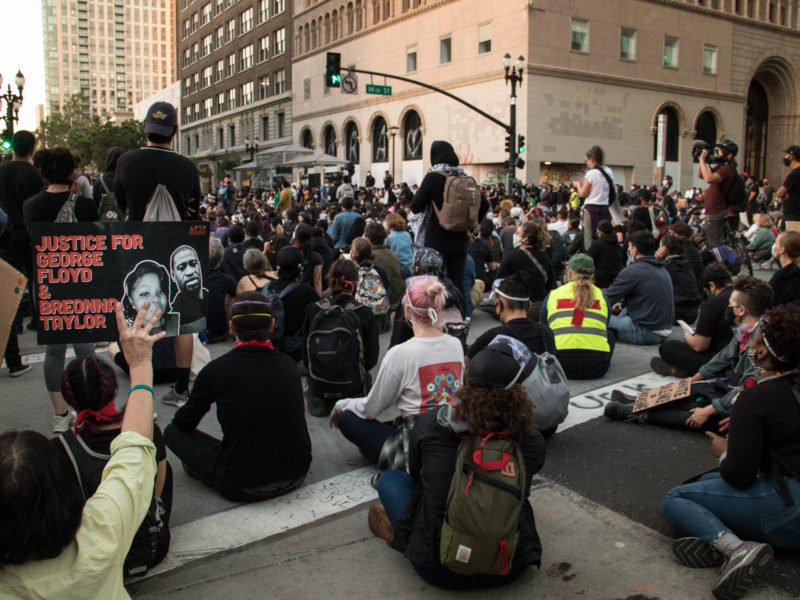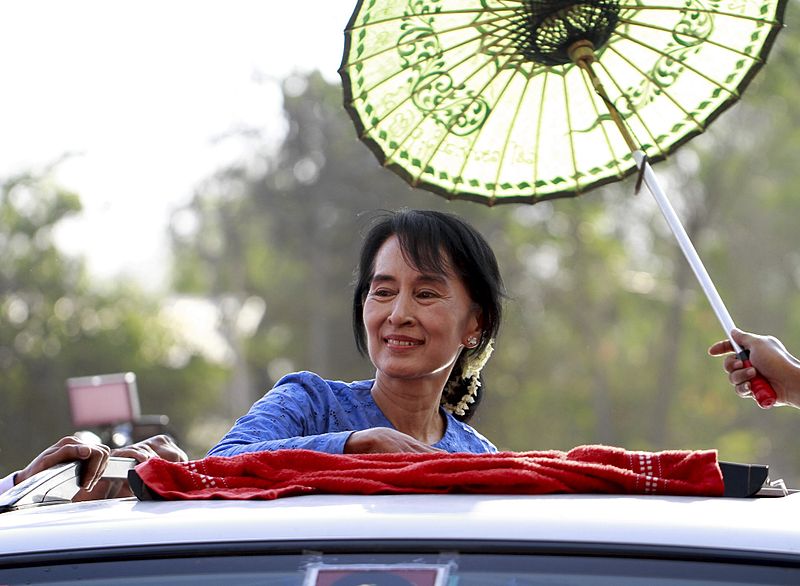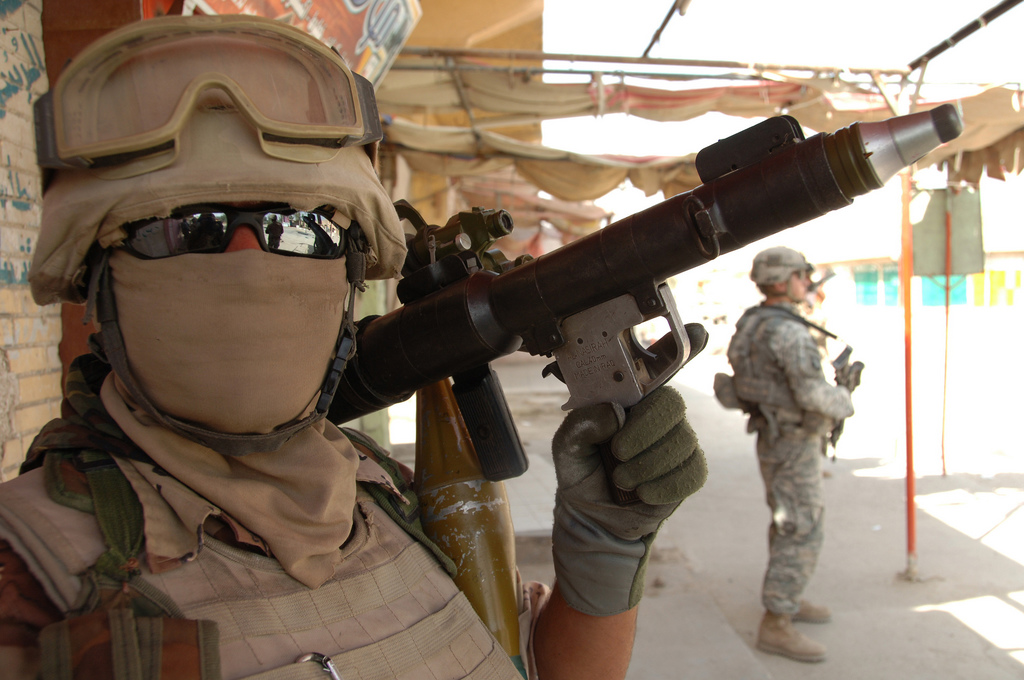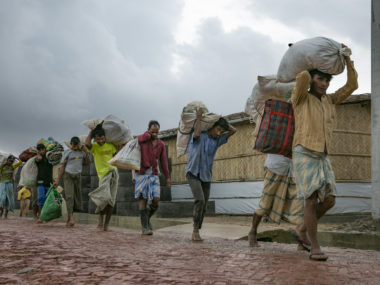Guest post by Jessica Maves Braithwaite
Concern is growing about the potential for escalating and widespread violence in the United States. People on both sides of the political aisle seem increasingly accepting of their party using violence if the other side wins in November.
Fear of political violence can become a self-fulfilling prophecy. If individuals and groups on competing sides choose to build up arms out of concern for one another’s actions, they are likely to encourage a spiral towards deeper and sustained violence.
But armament is not the only choice we have. It is possible, and frankly essential, to disrupt this security dilemma and choose nonviolence. Doing so requires commitment from a wide variety of folks in communities across the country to organize locally and work for peace—at the institutional, community, and individual levels.
The Specter of Violence
I’ve spent several years researching the dynamics of domestic unrest and the processes of rebel group formation. Though I’m not (yet) ready to declare that the US will experience another civil war, trends in mobilization in the US suggest that the threat of a sustained campaign of organized violence involving and targeting civilians is real.
The Department of Homeland Security recently identified white supremacist and far-right groups as “the primary terrorist threat to the United States.” With a political “outsider” like Trump as president, many anti-government and white supremacist groups feel they have an ally in the White House, and seem committed to keeping him in power. Many of these groups have long espoused anti-government ideologies and rhetoric and have already engaged in violence against both government and civilian targets.
Particularly troubling is Oath Keepers, a far-right, anti-government group comprised of veterans and law enforcement agents. Unlike most far-right and white supremacist groups, Oath Keepers has a hierarchical, networked organizational structure connecting chapters across the country, meaning it could potentially coordinate a campaign of violence from coast to coast. Moreover, many Oath Keepers members have combat training and access to advanced weaponry on par with the US military, the result of programs militarizing local law enforcement agencies. This is especially concerning because, in the context of many nascent civil wars, rebellions are often defeated by the government’s military early on because they have an overwhelming preponderance of force relative to would-be rebels. However, when would-be rebels have access to the same war-fighting technology as the military itself, things become much more complicated, much more quickly.
Preventing Violence in the US: Action Items
What can ordinary citizens do to reduce the risk of widespread political violence? Building on what others have written on how to stop a coup or prevent election violence in the US, below are a few things we can do to prevent escalation to civil war-esque violence in our communities.
Institutional action
Given the challenge posed by Oath Keepers and similar groups with connections to the military and law enforcement, local agencies must commit to stringent controls on access to military-grade equipment. Such measures already exist in many places (though they have previously been found to be deficient), and in order to participate in the 1033 program local agencies must have approval from civilian authorities like city councils and mayors. Protocols for the use of these resources are supposed to be made publicly available. Ensuring that officials enforce and in some cases enhance these measures is critical to prevent these war-fighting resources from being captured and used by groups like Oath Keepers against civilians or even the US military.
Community action
Maintaining nonviolent resistance in the face of violent challenges requires immense discipline, commitment, and coordination. Countless activist and civil society groups around the country have been doing the difficult work of mobilizing nonviolently for years in pursuit of social justice and democracy, including the incredible displays of nonviolent discipline in recent months by Black Lives Matter protesters who have been subjected to intense brutality from police and other civilians.
Nonviolent resistance campaigns like these are more likely to endure and succeed if a variety of people across communities are mobilized. Diversity matters. Others have shown how nonviolent “peace communities” and “zones of peace” persist even in the midst of intense civil war because of high degrees of coordination and organization in local communities.
It is possible to present a resilient, united, nonviolent front in the face of violence. Preparatory work is needed to help civilians readily identify, support, and engage with existing community organizations, and to encourage and strengthen coordination across these groups.
Individual action
Finally, to prepare for nonviolent engagement within our communities, individuals can enhance their own resilience by studying and training in nonviolent direct action (NVDA). Documents like this guide to defending democracy from Hold the Line as well as virtual lessons in NVDA allow us to anticipate and prepare for contentious scenarios so we are equipped to work with community organizations to resist violence, uphold democratic principles, and advocate for improvements locally and nationally. We can also learn from examples of civilian-led nonviolent resistance in places like Colombia and Ukraine; from theories of nonviolence; and from the invaluable resources provided by practitioner manuals and NVDA training sessions.
Sometimes it may seem like armed actors outnumber peaceful resisters, and that violence is likely to be more effective than nonviolence. But civil resistance can succeed even in challenging circumstances, and the ranks of civilians ready to peacefully reject violence and protect democracy in the US are growing. Law enforcement agencies need to do their part, as do community groups, journalists, academics, and policymakers. But ultimately, perhaps the greatest power lies with ordinary people who commit to doing the difficult but worthwhile work of promoting and practicing nonviolent direct action in pursuit of a peaceful and more just society.
Jessica Maves Braithwaite is an Associate Professor of Political Science in the School of Government and Public Policy at the University of Arizona.






